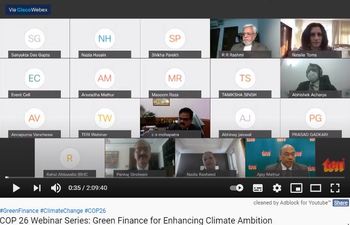Projected Costs of Generating Electricity
Publication Year: 2020
Author(s): International Energy Agency, OECD Nuclear Energy Agency
Abstract:
The key insight of the 2020 edition of Projected Costs of Generating Electricity is that the levelised costs of electricity generation of low-carbon generation technologies are falling and are increasingly below the costs of conventional fossil fuel generation. Renewable energy costs have continued to decrease in recent years and their costs are now competitive, in LCOE terms, with dispatchable fossil fuel-based electricity generation in many countries. The cost of electricity from new nuclear power plants remains stable, yet electricity from the long-term operation of nuclear power plants constitutes the least cost option for low-carbon generation. At the assumed carbon price of USD 30 per tonne of CO2 and pending a breakthrough in carbon capture and storage, coal-fired power generation is slipping out of the competitive range. The cost of gas-fired power generation has decreased due to lower gas prices and confirms the latter’s role in the transition. Readers will find a wealth of details and analysis, supported by over 100 figures and tables, that establish the continuing value of the Projected Costs of Generating Electricity as an indispensable tool for decision-makers, researchers and experts interested in identifying and comparing the costs of different generating options in today’s electricity sector.
Publisher/Organisation: International Energy Agency
Theme: Economic | Subtheme: Financing
Related Documents
Reports
Land Value Capture for Transit Oriented Development
Published Year: 2020
Abstract:
This document is the second knowledge product developed as a part of the technical assistance.... Read More
Opinions/Videos

COP 26 Webinar Series: Green Finance for Enhancing Climate Ambition
Published Year: 2020
Abstract:
The last half-decade has seen a global call to action to tackle climate change and pollution,... Read More
Reports

Mobilizing Finance for EVs in India
Published Year: 2021
Abstract:
India’s transition to electric vehicles (EVs) has advanced rapidly in the past few years... Read More



